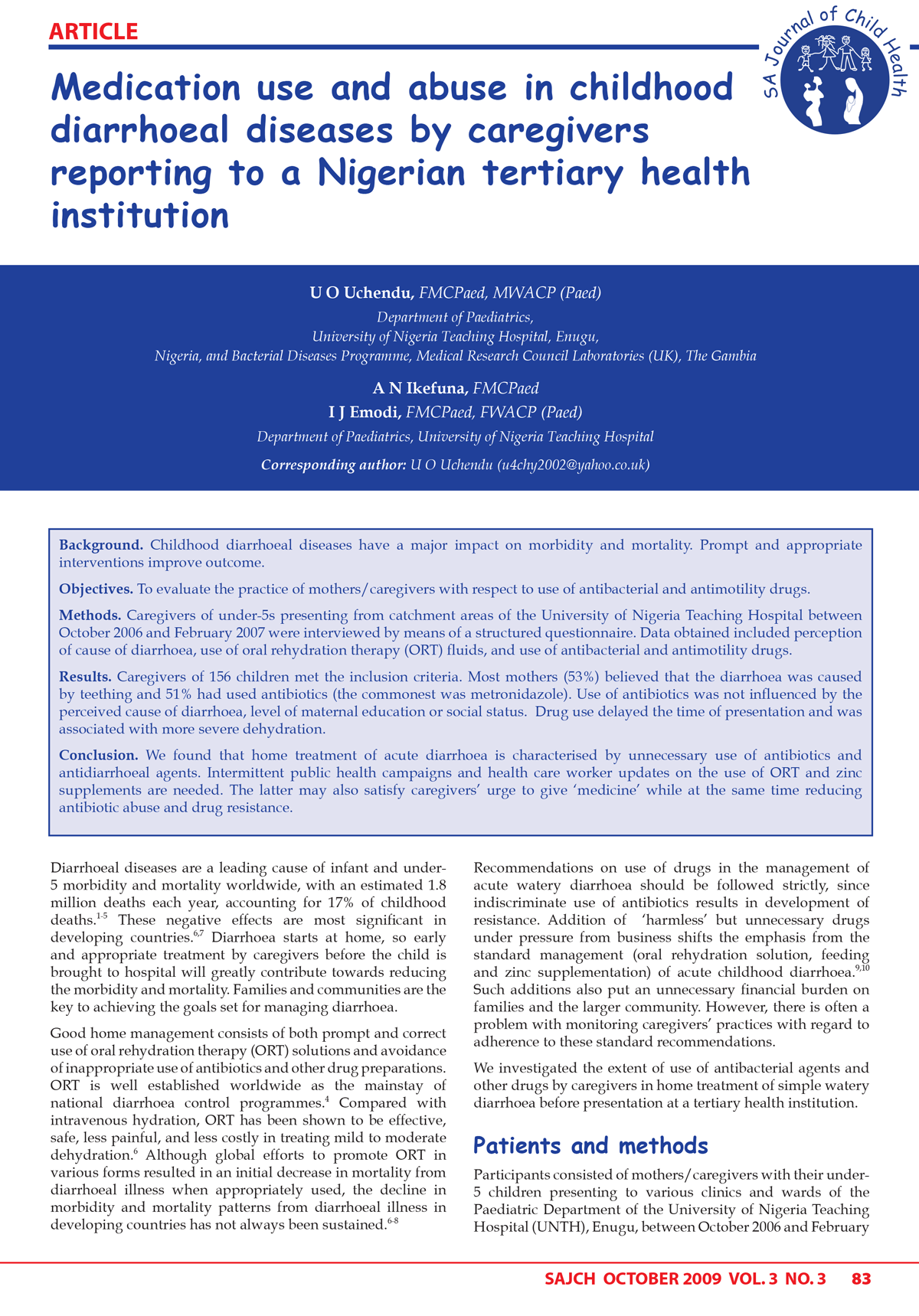
Resource Library
Medication use and abuse in childhood diarrhoeal diseases by caregivers reporting to a Nigerian tertiary health institution
Childhood diarrhoeal diseases have a major impact on morbidity and mortality. Prompt and appropriate interventions improve health outcomes.
The objectives of the study were to evaluate the practice of mothers/caregivers with respect to use of antibacterial and antimotility drugs.
To meet this objective, caregivers of under-5s presenting from catchment areas of the University of Nigeria Teaching Hospital between October 2006 and February 2007 were interviewed by means of a structured questionnaire. Data obtained included perception of cause of diarrhoea, use of oral rehydration therapy (ORT) fluids, and use of antibacterial and antimotility drugs.
The results showed that caregivers of 156 children met the inclusion criteria. Most mothers (53%) believed that the diarrhoea was caused by teething and 51% had used antibiotics (the commonest was metronidazole). Use of antibiotics was not influenced by the perceived cause of diarrhoea, level of maternal education or social status. Drug use delayed the time of presentation and was associated with more severe dehydration.
From the results of the study it was concluded that home treatment of acute diarrhoea is characterised by unnecessary use of antibiotics and antidiarrhoeal agents. Intermittent public health campaigns and health care worker updates on the use of ORT and zinc supplements are needed. The latter may also satisfy caregivers’ urge to give ‘medicine’ while at the same time reducing antibiotic abuse and drug resistance.
Resource Type : Brief
Country : Nigeria
Year : 2009-10-01T00:00:00
Language : English
Project : SHOPS


